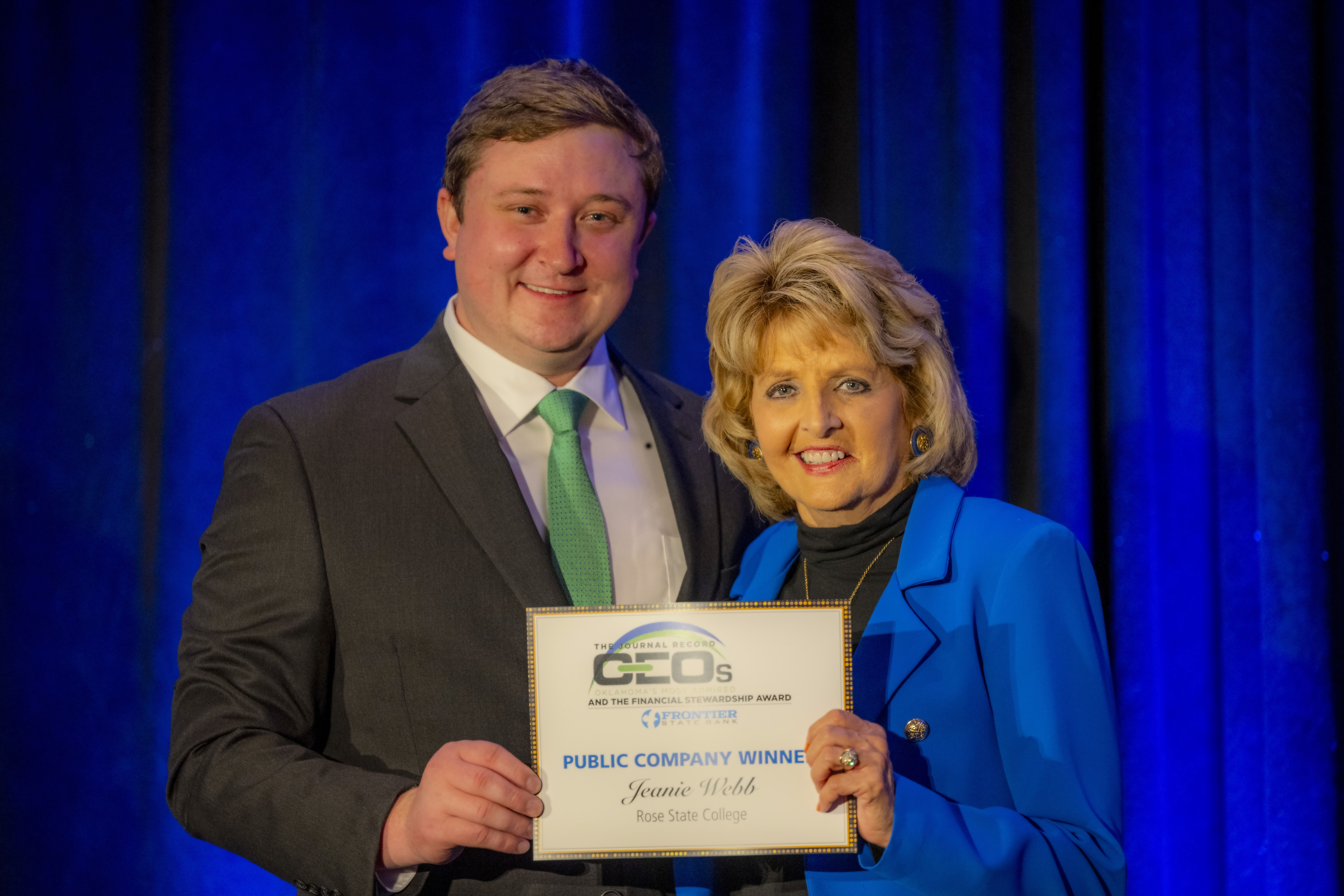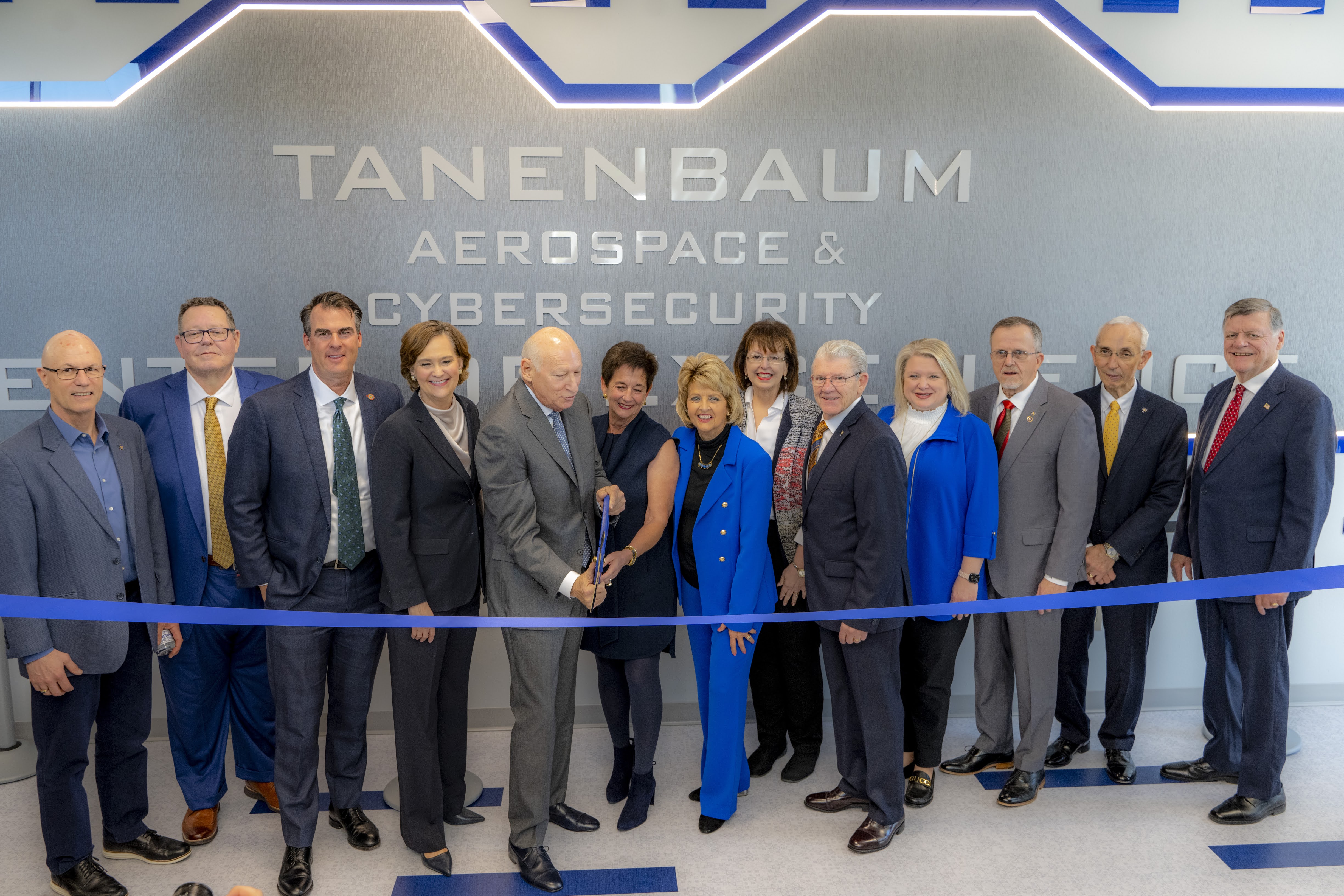Miller, Marcelle
Born: Gould, Oklahoma, west of Lawton
Date Interviewed: 2003
Interviewer: Catherine Peters-Ellis & Joan Were
Topic:
Q: Where did you attend school?
A: I attended a two-room school at Goodwell, and then high school at Gould, and then college at Oklahoma State University – it was Oklahoma A&M then.
Q: How long did you attend at A&M?
A: I graduated.
Q: What were your interests and hobbies as a young woman?
A: At that time, horseback riding, softball, volleyball, I was active in 4-H. I lettered in nine organizations in high school, so I stayed real busy. Glee club – that kind of thing.
Q: When did you begin to get a sense that the US was headed toward war?
A: Well, war broke out when I was a freshman at Oklahoma A&M. I remember I was going up the stairs to my room and someone came down and said the Japanese had bombed Pearl Harbor.
Q: What was your reaction to that?
A: I think I was frightened. I was 17 and I really couldn’t comprehend what it all meant at that time. Not until my friends began to go into the service did I begin to realize what it was all about.
Q: What was the atmosphere like and the mood of the people in the town in which you lived?
A: I think they were all very concerned because the young men were going to be called up. Of course, some women went into the service, too. But you’d see people leaving and you don’t know if they were going to come back. It’s scary.
Q: Were you married at the time or seeing anyone on a regular basis?
A: No.
Q: When did the government announce that women were going to be brought into the defense industry?
A: I don’t know that it was really announced. It was just that with men going into the service, the women had to step in and fill the gaps there. And for me, the reason I ended up working there was because I needed to earn money to go to school. That was why I went. A friend of mine and her family had moved to California and they invited me to come out and stay with them and work awhile. And I finally convinced my parents that I could do that. So I worked a few months out there. Then I went back to school.
Q: What did your parents think of that?
A: They didn’t like it at all – my mother. But I finally convinced them that I should do that. I was determined.
Q: What was your reaction at the time?
A: Let’s see, that was 60 years ago. . .(laughter). . . I was excited about going to work, and about going to California.
Q: Had you not worked before that?
A: Well, I lived on a farm, so yes, I worked on the farm. I hoed cotton and pulled cotton all that kind of stuff.
Q: When did you become a so-called “Rosie the Riveter?”
A: It was between my freshmen and sophomore year in college. My friends were working at Rohr Aircraft, so they took me there to apply. Actually, they wanted me to go to work in the office, but I thought it would be more patriotic to work in the plant. So I went to school for a week or so and learned how to be a riveter. I felt real patriotic because we were working on the boom doors for a P-38 plane, so I felt like I was there in the big middle of it. Doing what I was supposed to do. At the age of 18.
Q: How did people close to you react to your decision?
A: The people I worked with? React to a woman being there?
Q: Well, that, and your parents and family. How did they react to your decision to be “Rosie the Riveter?”
A: It didn’t matter. It was OK. No big deal.
Q: It was an accepted thing?
A: Yes.
Q: Did you a lot of other women in your area that were also going to become involved in defense industry work?
A: No, I didn’t. Nobody influenced me other than my friends that offered me a place to stay.
Q: How did the process unfold as you went from civilian to defense industry worker?
A: It was just a job.
Q: What kind of job or jobs did you work and what were you responsible for?
A: Well, all I had to do was just work on the boom door of the P-38. Let’s see, one of put the rivet in the hole and the other had to operate a gun to make the rivet stay in place.
Q: So that’s all you were responsible for? Putting the rivets in the doors?
A: That’s what we did all day long.
Q: How many hours a day would you work?
A: Eight.
Q: How many days per week did you work?
A: Five.
Q: What kind of pay did you make?
A: I don’t remember at all what we got paid.
Q: How long did your employment last there?
A: I stayed about three months. Maybe four.
Q: What was the mood of your fellow female workers?
A: I think I was the only female in that group. I think the men, they kind of snickered a little bit. But when they found out my work passed just like theirs did, well, nothing was ever said.
Q: They didn’t give you a real hard time or nothing?
A: No, oh no. No, no, no. They didn’t. I think they were surprised. I didn’t go in there to fail.
Q: Was there a sense of camaraderie among the workers?
A: Yes.
Q: Did you make any life-long friends?
A: Yes.
Q: Did all the workers enjoy the work or did the work prove to be difficult for some?
A: No.
Q: My other questions ask about all the other women you worked with, but since you didn’t work with any . . .
A: I didn’t work with any other women. I know I ate lunch with one, but I think she was in a group next to mine.
Q: So from what you know of that lady, were the women every kind of economic, ethnic, racial or social background?
A: Yes, all kinds.
Q: Could you please elaborate whether all the women were treated equally or if some women because of their background had a more difficult time than others. Please feel free to expand on anything to do with the diversity of the women.
A: I was not aware of it. There could have been, but I was not aware of it. I got treated all right, so. . .
Q: What was the reaction of your fellow male workers? How did they react to you at first?
A: Well, they just accepted it. That’s all they could do. They didn’t give me a bad time at all. I was treated well by them. In fact, there was a little old man in the group that could have stopped anything had something started, but nothing did. He kind of took me on as his granddaughter. . .
Q: How were you treated by the local bosses who were in charge?
A: Just fine.
Q: You didn’t work at Tinker Air Force Base?
A: No, I didn’t.
Q: What base did you work at?
A: Rohr Aircraft in Chula Vista, California.
Q: What was the overall atmosphere like there and in the surrounding area?
A: Everybody around there worked at an aircraft company of some kind. Many of the people did. Everyone was very concerned because we wanted to win the war.
Q: What kind of memorable occurrences did you witness or experience?
A: I don’t know if there was anything particular that I experienced. I just did my job.
Q: After the war was there any kind of pressure from the government and the media for women to leave the workplace and return to the home so that the male veterans could once again have access to jobs?
A: No. Well, I wasn’t working at the end of the war, so I don’t know. I was back at school. But when the war was over I went on working at something else.
Q: How do you think the war years impacted the lives of women in this country?
A: It got them out of the home. I’m not sure it was a good impact, because I think the home-life was kind of hampered by women leaving the home, and not being there for their children. The women have kept on working out of the home. They got a taste of what it was like. I think we got the desire to earn more money. The only way we could have more money was if we had two incomes, and I’m not sure that was a good thing. But, anyway, that’s what happened. The standards of living went way up, or the standards for what you thought you ought to have went way up. And the only way you could get those was to have more income.
Q: When the war was over, did you keep on working?
A: Well, my husband didn’t like for me to work. He liked for dinner to be ready to put on the table when he walked in the door, and my son didn’t like for me to work, because he wanted his mother to be available to do all the things he thought a mother ought to do. So I did work 20 years of so, but it was whenever I wanted to.
Q: What impact did the working women of World War II and their experiences have on future generations of American women?
A: Well, I think just what I’ve said. They got started working out of the home, and they haven’t been back. Or many women did.
Q: Did the skills you learned during the war serve you in any kind of way in the subsequent years after the war?
A: I think getting to work on time, doing a good job, and giving eight hours a day to your job like you’re supposed to – good work habits came from it.
Q: What things stand out most in regard to your experience as a “Rosie the Riveter” or any other kind of work you did during World War II? What kind of lessons did you learn?
A: Just to do a good job whatever you’re doing. Give it your all.
Q: Is there anything else you’d like to expand on?
A: I think it was a really good experience, because that was my first time to really be out working with people with all kinds of backgrounds. I learned to respect all groups of people, and found they could contribute something, too. No great, profound things. All I’ve always known all my life is to do a good job at whatever I do. Follow instructions. Get along with people. You can’t have a lot of dissension and do a good job at anything. And it’s very unpleasant to be working around people where there are problems. That’s not desirable at all. I just kept my mouth shut and did my job.



